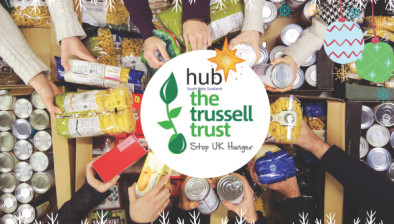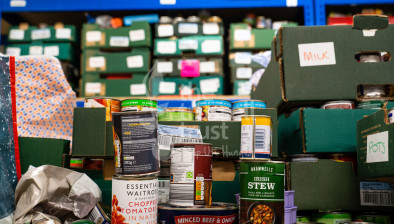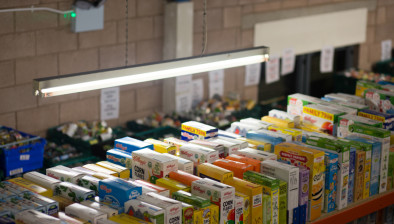Foodbank use ‘at a record high’ in Scotland
 The use of foodbanks in Scotland remains at record levels, figures published by The Trussell Trust have revealed.
The use of foodbanks in Scotland remains at record levels, figures published by The Trussell Trust have revealed.
In the 2014/15 financial year, 133,726 emergency supply packages were given out to people in crisis by The Trussell Trust’s 51 food banks - an increase of 13% on the previous year.
This figure included 43,962 packages for children, the charity said.
Across the UK foodbank use rose two per cent on last year. A total of 1,109,309 three day emergency food supplies were provided to people in crisis by the charity’s network of 424 foodbanks in the 2015/16 financial year, compared to 1,084,604 in 2014/15. Of this number, 415,866 went to children.
The figures show that Scotland is second only to the north west of England in terms of the number of referrals to food banks.
For the first time, The Trussell Trust has also partnered with the University of Hull to develop new tools that help us better understand the drivers of foodbank use, and areas of greatest need, by mapping foodbank data against census data. The early findings of this new research reinforce the trends seen by foodbanks related to benefits problems and low income.
A Trussell Trust spokeswoman said benefit delays remain the biggest primary reason for referral to a food bank in Scotland, with more than a quarter of recipients affected.
Ewan Gurr, the trust’s Scotland manager, said: “The figures released today highlight an alarming number of people hitting a crisis and being unable to buy food. The main increase has been to the numbers on low incomes, which is leaving people without enough to live on. In addition to that, almost half of referrals in Scotland are due to a benefit-related difficulty.
“In Scotland, we have heard from people using food banks due to the heart-breaking reality of losing a job in the oil and steel industries, others feeling a sense of despair after delays to a Universal Credit payment and some who have experienced sanctions that have impacted on their physical and mental wellbeing.
“We encourage our policy makers to listen to those using food banks and learn from their experiences. This way we can ensure the right changes are prioritised to help reduce the hunger and poverty we see in food banks every day.”









